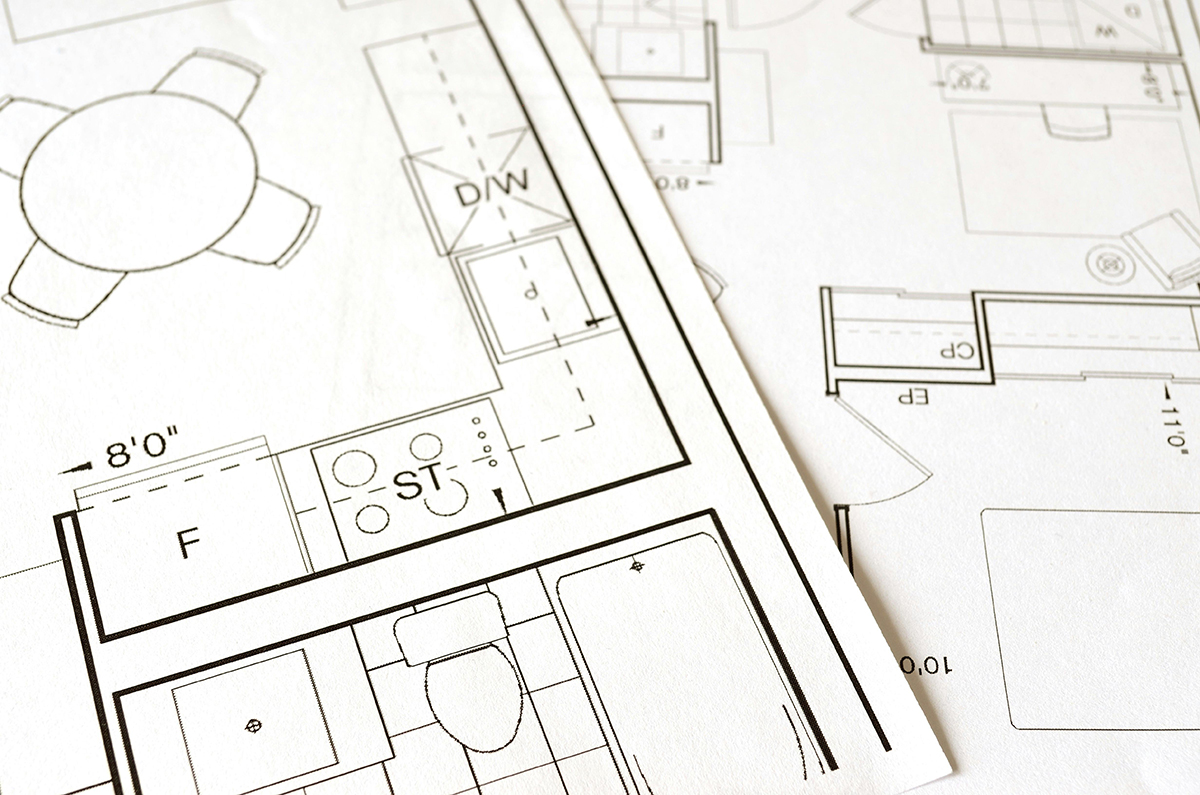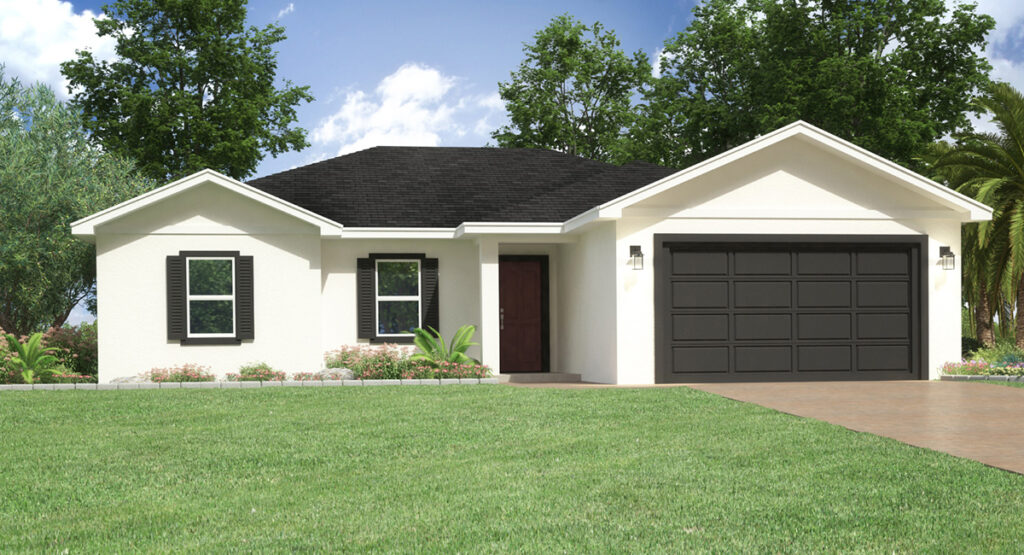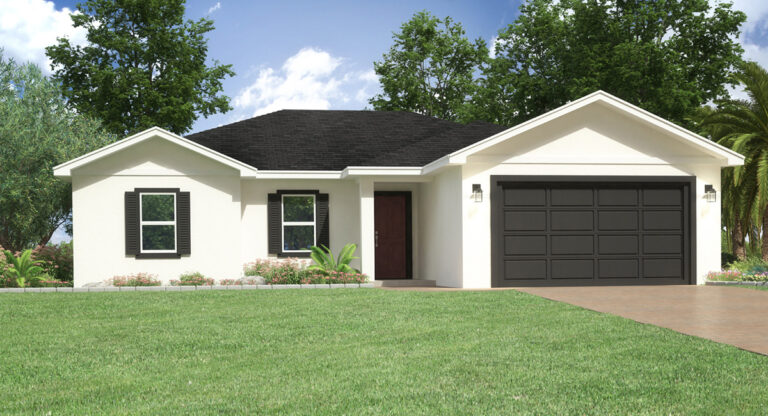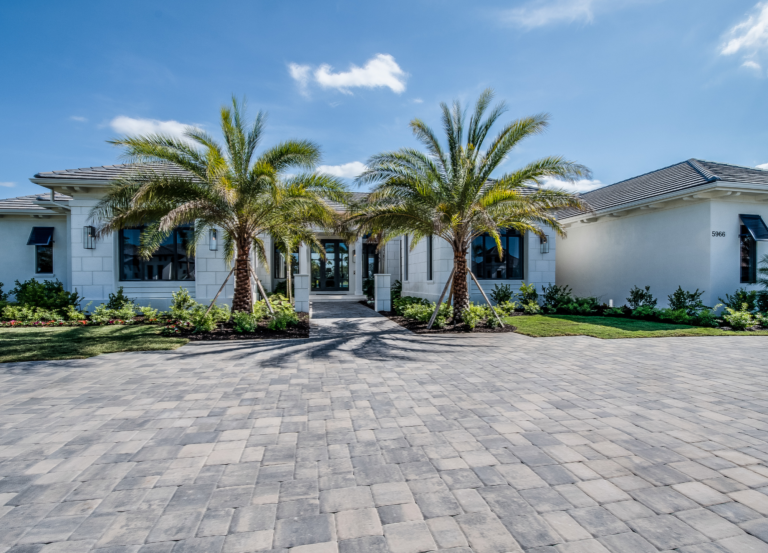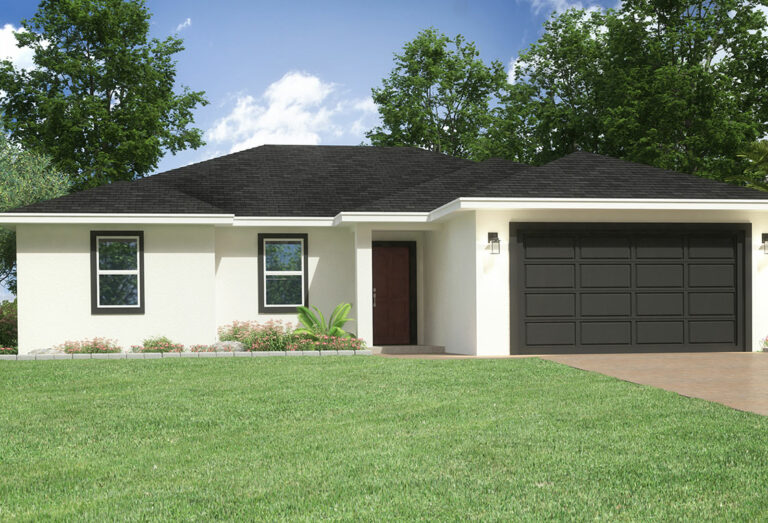What Are Construction Loans And How Do They Work? A Guide for Florida Home Buyers
Navigating the landscape of home construction can be a complex but rewarding venture, especially when it comes to financing the home of your dreams in the Sunshine State. A home construction loan is a specialized financing tool designed to cover the myriad of construction costs associated with your building project. Unlike traditional mortgages, construction loans offer a unique structure that can cover not just the costs of materials and labor, but also the land purchase necessary for new construction projects.
This guide aims to shed light on how construction loans work in Florida, offering insight into how prospective homeowners can leverage these loans to turn their architectural dreams into reality.
What Is A Construction Loan?
A construction loan, also known as a “construction-only loan,” is a short-term loan provided by lenders to cover the cost associated with the construction of a new home or renovation project. Unlike traditional home loans that are based on the value of an existing house, a construction loan relies on the projected value of the home once the construction is complete. These loans are typically interest-only during the construction phase, meaning borrowers only pay the interest on the amount drawn for the duration of the building process. After completion, the construction loan either becomes due in full or is converted to a traditional mortgage loan, depending on the terms agreed upon.
For first-time home buyers, understanding the nuances of construction loans versus conventional loans is pivotal. This knowledge not only demystifies the home-buying process but also provides insights into financial planning for future homeownership. While regular mortgages are structured around the purchase of an existing home, construction loans cater to those looking to build from scratch or undertake significant renovations.
Recognizing the distinctions between these financing options allows first-time buyers to make informed decisions that align with their long-term housing goals and financial capabilities. Knowledge of these loan types ensures that buyers are not caught unawares by the terms of their loans, leading to a smoother transition from construction to homeownership.
How Do Construction Loans Work?
Construction loans are unique in comparison to standard home loans because they are given out in stages and not as a single lump sum. This means that the funds from a construction loan cover specific phases of the construction process, and borrowers can draw only what is needed at each stage, ensuring a level of financial control and efficiency. Home construction loans are particularly designed to manage the dynamic expenses associated with building or renovating homes. Since construction projects can sometimes extend beyond their expected timelines or budget, construction loans tend to offer a degree of flexibility not typically available in traditional mortgage agreements. This flexibility is essential, as it allows for adjustments in funding according to the actual progression of the construction project.
The disbursement of a construction loan is meticulously aligned with various phases of the construction process, ensuring that the funds are utilized efficiently and effectively. Initially, the loan may cover the land acquisition if it hasn’t been purchased outright. Following this, the funds are typically released in subsequent increments that correspond with major milestones in the building project, such as laying the foundation, framing, and finishing.
Each phase of disbursement is contingent upon an inspection to confirm that the specific phase of construction has been completed satisfactorily before the next wave of funds is released. This systematic approach ensures that the construction process proceeds as planned and within budget, reducing the financial risks associated with building a new home. This phase-wise disbursement serves as a check and balance mechanism, providing lenders with a level of oversight and homeowners with a roadmap for the construction project’s progression.
What’s The Difference Between A Traditional Mortgage And A Construction Loan?
The key distinctions between traditional mortgages and construction loans rest primarily in their structure, purpose, and payment terms. First and foremost, construction loans typically have shorter terms and higher interest rates compared to a traditional mortgage loan. This is because construction loans bear a higher risk, given that the loan finances a project yet to be completed, unlike a mortgage which is secured against an existing property. The interest rates for construction loans reflect this heightened risk, often being higher than those for a traditional mortgage.
Additionally, while a traditional mortgage loan disburses the full loan amount at closing, construction loans release funds in stages corresponding to specific construction milestones. This phased disbursement ensures the funds are used for the intended purpose and helps manage the project’s cash flow. Consequently, borrowers of construction loans only pay interest on the amount withdrawn at each stage, rather than the entire loan amount from the outset.
In essence, the difference in structure between the two types of loans significantly affects the financial planning and management of borrowers. Those opting for construction loans must anticipate not only construction loan rates but also the unique disbursement schedule, adjusting their financial strategies accordingly to accommodate the stepwise funding of their construction project.
Benefits of Construction Loans for Home Buyers
Construction loans offer several benefits to home buyers, particularly those looking to turn their architectural dreams into reality. Let’s discuss these potential benefits:
Flexibility
One of the significant advantages of opting for a construction loan is the flexibility it offers in financing. This flexibility is particularly evident in the process of determining the loan amount and how it can be adapted based on the evolving needs of the construction project. Since the loan amount is not disbursed in one lump sum but rather in stages aligned with project milestones, borrowers have the opportunity to reassess and adjust their financial needs as the construction progresses. This phased disbursement model allows for adjustments to the loan amount in response to changes in construction plans, unforeseen expenses, or when savings are made. Consequently, home buyers can ensure that they are not over-borrowing or paying interest on funds that are not yet needed, providing a more efficient and tailored financing solution that matches the specific requirements and timings of the construction project.
Customization
Another compelling benefit of securing a construction loan is the unparalleled level of customization it provides to prospective homeowners. Unlike purchasing a pre-existing home, where modifications can be limited and costly, a construction loan enables individuals to tailor every aspect of their future residence during the construction phase. This means homeowners have the freedom to design their living spaces according to their specific tastes, needs, and lifestyle preferences right from the outset. Whether it’s incorporating energy-efficient technologies, choosing unique architectural styles, or selecting interior finishes that resonate with their personal aesthetic, borrowers can make decisions that profoundly reflect their identity and aspirations. The construction phase, supported by a construction loan, becomes an opportunity for future homeowners to create a space that truly feels like home, molded by their vision and executed with precision to meet their desires.
Cost Savings
Another significant benefit of construction loans lies in the potential for cost savings. By structuring the loan to disburse funds in alignment with the construction milestones, borrowers can save money by only having to pay interest on the portion of the loan that has been released. This differs from traditional loans, where the borrower may be required to pay interest on the entire loan amount from the onset. Construction loans, therefore, offer an efficient way to manage finances throughout the building process, as homeowners are not burdened with the full interest costs while their home is being built. Furthermore, this method of financing can lead to considerable savings, especially in projects that have extended timelines. By strategically planning the construction phases and corresponding disbursements, homeowners can optimize their cash flow and minimize the overall financial impact, ensuring that they only pay interest on what they need, when they need it.
How Do I Get A Construction Loan?
For first-time homebuyers exploring the possibility of building their dream home, understanding how to secure a construction loan is crucial. The process involves meeting specific construction loan requirements that vary between lenders but generally include a minimum credit score, a minimum down payment requirement, and a thorough review of the borrower’s financial health. Lenders typically seek a credit score of at least 680, although this can vary depending on the financial institution and the loan’s specific terms. Additionally, the minimum down payment requirement for a construction loan is often higher than that of a traditional mortgage, usually ranging from 20% to 25%, to account for the higher risk associated with these loans.
Loan approval for a construction loan also necessitates providing detailed documentation, such as bank statements, proof of income, a comprehensive credit history, and evidence of a manageable debt-to-income ratio. This documentation helps lenders assess the borrower’s ability to repay the loan — a significant concern given the loan’s unique structure and the inherent risks of construction. Lenders examine these details meticulously to ensure that the applicant has the financial stability to handle the irregular cost flows that characterize the construction phase of homeownership.
Navigating these requirements might seem overwhelming for first-time borrowers. However, understanding what lenders look for and preparing accordingly can significantly smooth the path to realizing their dream of building a custom home.
Key Considerations for Florida Residents
For Florida residents, there are a few key considerations to keep in mind when it comes to obtaining a construction loan.
Local Regulations And Permits
For Florida residents particularly, investing time to understand and comply with local regulations and permits before initiating a construction project is indispensable. Local regulations are designed to ensure that all construction projects meet specific safety, environmental, and aesthetic standards that maintain the quality and harmony of neighborhoods and communities. Obtaining the necessary permits before starting construction is a legal requirement that cannot be overlooked.
These permits serve as an official endorsement for the project, verifying that the plans comply with local laws and regulations. Failure to adhere to these prerequisites not only puts the construction project at risk of delays or legal complications but can also lead to fines and the necessity of redoing work that does not comply. Thus, considering local regulations and permits is crucial in ensuring that the construction project proceeds smoothly and within the bounds of legal and community standards.
Choosing The Right Lender
Choosing the right lender for your construction project involves thorough research and due diligence to ensure that your building endeavor is supported effectively from start to finish. It’s advisable to begin by consulting with reputable sources like the National Association of Home Builders for recommendations on lenders experienced in construction financing. Engaging with well-established construction companies, such as Price Family Homes, can also provide valuable insights into lenders who have a solid track record of supporting similar projects. When evaluating potential lenders, consider their familiarity with local regulations, their flexibility in adapting loan terms to meet the unique needs of your construction project, and their overall responsiveness and customer service. The right lender should not only offer competitive financing options but also act as a partner in the successful completion of your home, ensuring a seamless process from groundbreaking to move-in day.
Understanding The Timeline
Understanding the construction timeline is vital for homeowners as it provides a comprehensive overview of the construction period, enabling effective planning and decision-making throughout the building process. A well-defined timeline helps homeowners anticipate key milestones and prepare for any necessary actions on their part, such as selecting finishes or procuring fixtures. Additionally, being aware of the construction schedule facilitates better communication with contractors, ensuring that any issues can be addressed promptly without significant delays. This knowledge empowers homeowners to maintain a level of control over the construction process, contributing to a smoother, more predictable path to completing their dream home.
Build Your Dream Home With Price Family Homes
Choosing Price Family Homes as your general contractor in Florida to construct your dream home brings numerous advantages. This highly reputable company distinctly understands the needs and desires of families looking to build in Florida, ensuring that every aspect of your home reflects your vision and lifestyle. Beyond their expertise in crafting beautiful, high-quality homes, Price Family Homes stands out for its comprehensive financial support options.
They offer construction loans tailored to streamline the building process, making it easier and more accessible for families to finance their new homes. With Price Family Homes, you not only get a trusted partner who will guide you through every step of creating your dream home but also the financial flexibility that comes with their construction loan offerings. Their dedicated approach ensures that building your family’s forever home in Florida is a seamless, enjoyable experience from start to finish.
Frequently Asked Questions
What are the benefits of a construction to permanent loan?
A construction to permanent loan, also known as a “single close” loan, combines the financing for the construction of your new home and its permanent mortgage into one loan. This offers several benefits for home buyers, including convenience, potentially lower closing costs, and the ability to lock in interest rates upfront.
How do I qualify for a construction loan?
Qualifying for a construction loan is similar to qualifying for a traditional mortgage. Lenders will look at factors such as your credit score, debt-to-income ratio, and income stability. However, because of the added risk involved with construction loans, lenders may require a higher down payment and stricter underwriting criteria.
Can I convert my construction loan to a permanent mortgage?
Yes, a construction-to-permanent loan option is designed to provide convenience by allowing borrowers to convert their construction loan into a permanent mortgage upon completion of their home build. This conversion not only simplifies the financing process by reducing the need for two separate closings but also offers the potential benefit of locking in a mortgage rate at the construction stage, providing financial predictability and savings over the loan term.
Can I use a construction loan for renovations?
Yes, certain types of construction loans can be used for major renovations. A renovation loan is specifically designed to fund upgrades and improvements, allowing homeowners to finance both the purchase price of their home and the cost of renovations with one loan. This can be a convenient and efficient way to finance home improvements.
How do FHA loans fit into construction financing?
FHA loans, backed by the Federal Housing Administration, offer a construction-to-permanent loan option known as the FHA 203(k) loan. This program allows homebuyers and homeowners to finance both the purchase (or refinancing) of a house and the cost of its rehabilitation through a single mortgage, or to finance the rehabilitation of their existing home.
What’s the difference between construction only loans and construction-to-permanent loans?
Construction only loans provide financing exclusively for the construction phase of a home and must be paid in full upon completion. In contrast, construction-to-permanent loans cover not only the construction costs but also convert into permanent financing once the construction is complete, usually without requiring a second closing.
Are there special construction loans for veterans?
Yes, VA loans, backed by the U.S. Department of Veterans Affairs, offer VA construction loans. These loans are exclusively available to veterans, active-duty service members, and eligible spouses. They provide a way to finance the construction of a new home without requiring a down payment or private mortgage insurance (PMI), similar to other VA loans.
How does permanent financing work with construction loans?
Upon completion of construction, construction-to-permanent loans transition from a construction loan into a regular mortgage. This process typically involves a single closing at the beginning of the construction phase, where the loan terms are agreed upon upfront, including the interest rate of the eventual mortgage. This allows borrowers to secure permanent financing without needing to reapply for a new loan at the end of construction.
How does Rocket Mortgage support construction loans?
Rocket Mortgage offers solutions tailored for individuals seeking financing during the construction phase of their home. By providing specialized products that cater to both construction-only and construction-to-permanent loan needs, Rocket Mortgage ensures that homeowners have the necessary financial resources to see their construction projects through from start to finish. They help streamline the process, making it more convenient for borrowers to manage their finances effectively during the building phase.
What is an end loan in relation to construction financing?
An end loan refers to the permanent mortgage that a homeowner secures to pay off the construction loan once their home is completed. It differs from a construction-to-permanent loan, which automatically converts the construction loan to permanent financing at the end of the construction. End loans come into play primarily in situations where a borrower uses a short-term loan to cover the construction period separately and then obtains a traditional mortgage to finance the finished home.
Are short-term loans a good choice for financing home construction?
Short-term loans can be advantageous for financing home construction for borrowers who anticipate quicker turnaround times for their construction projects or who might have existing financial strategies for transitioning to more traditional, long-term financing options. These loans offer flexibility and may align better with certain borrowers’ financial situations or construction timelines. However, it’s essential to carefully consider the interest rates and terms, as short-term loans may come with higher costs or require more immediate refinancing into a permanent mortgage.

